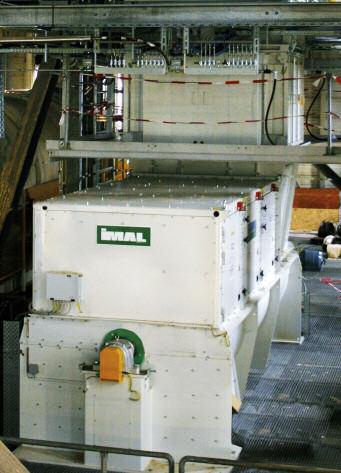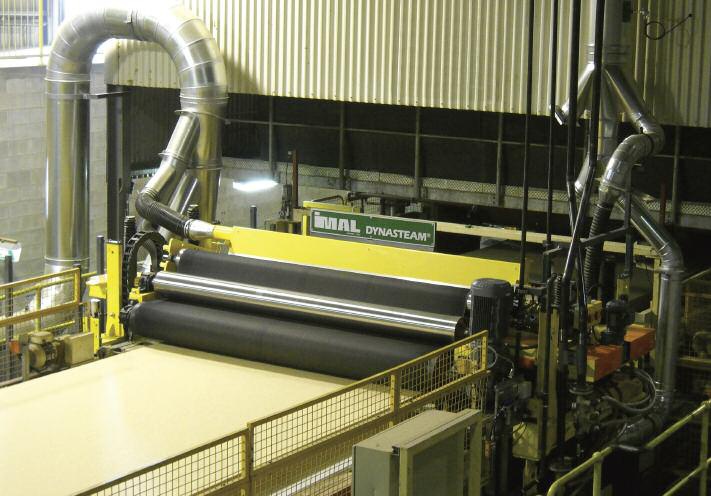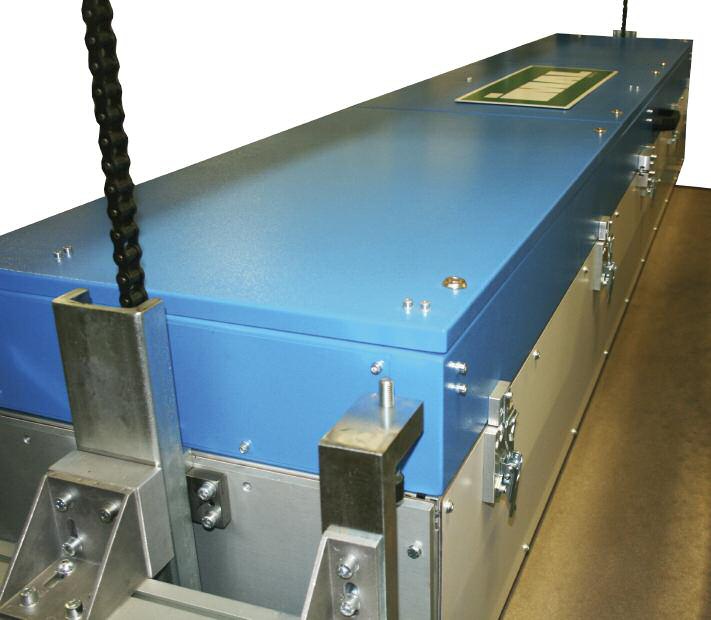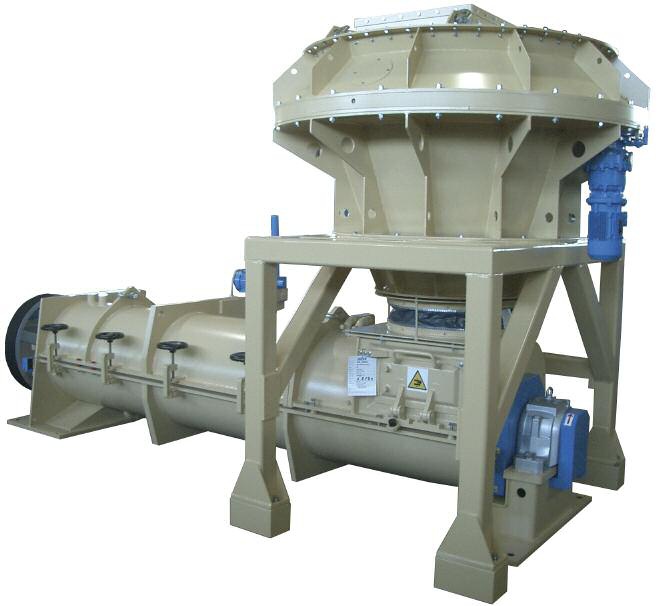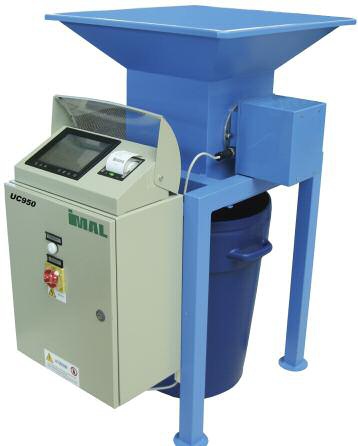Move to single-source prompts fight-back
3 August 2011The last few years have witnessed a complete change in the marketing strategy of the world’s leading equipment manufacturers for the wood based panel industry, with two major German suppliers opting to produce all equipment and machinery in-house. This includes everything from mills to chippers, blenders, bin scales, glue kitchens, screens, air graders, silo extractors and, recently, sanders as well, with an ‘all from one source’ philosophy, points out Loris Zanasi, president of Imal-Pal.
“However, not all customers share this philosophy, as often, the exploration of new industrial territory and lack of specific field experience can have costly repercussions and, furthermore, it is only natural for any customer when making the decision to purchase a complete plant, to seek the very best the market has to offer from several specialist suppliers, rather than having to depend on a sole supplier.”
Many specialist companies, like Imal and Pal for example, says the president, have painstakingly striven over the years to reach the universally acknowledged quality and reliability they enjoy today.
After supplying two major German supplier groups for many years with their equipment, know-how and continuous innovations, the Imal-Pal group, faced with this move to complete system supply, suddenly found themselves having to make a rapid decision and decided that the only way to find room for their own products was to ‘go solo’ and supply complete plants – with continuous presses.
“The results were immediate,says Mr Zanasi; two complete lines with continuous presses are currently being assembled in China and a new line has been sold to a facility in Europe. The first complete line with continuous press will actually be installed by Imal in Italy. There are also ongoing negotiations with several other customers.”
Not at all discouraged by the radical changes in the industry structure, Imal says it has continued to design and patent its innovations and new technology, to retain what it sees as its position as a world leader in the supply of gluing systems, blending systems and quality control.
The Imal–Pal group has reached record sales this year of over €100m and the forecast, on the basis of its current order book, is that it will do even better in 2012, says Mr Zanasi.
“The first innovation is the DynaSteam, a new method for injecting steam into the mat just before it enters the press: innovative technology has been applied to inject the steam into the mat at low pressure but at elevated temperature to prevent any condensation or moisture from being released,he explains. “This simple and compact unit may be installed in no time at all on any continuous press line without the need for expensive or complicated structural modifications to that line.
“Ten of these units have already been installed and successfully put into operation and eight more are currently being manufactured for new orders.
“Production on an OSB line, where the latest system has been installed, has increased by as much as 40% with 18mm board.”
Mr Zanasi feels that this new system has not yet revealed the extent of its true power and strength.
He says the DynaSteam has been successfully applied on MDF lines and a particleboard line and it is very likely that this application will be able dramatically to cut engineering costs in the near future, because, by increasing production capacity in this way, the length of the continuous press could be decreased and consequently less space would be taken up in the building.
Other major benefits claimed for the Steam Injection system in terms of quality in MDF lines include a much better density profile and a better glass-like surface, which produces a further advantage in that less lacquer is required to coat the surfaces in the subsequent work processes, says Imal.
A new direction has also been taken by Imal-Pal in the design of resination systems which, in the case of OSB resination, eliminates the large rotating drums and spinning heads. With this new resination system, expensive and time-consuming shutdowns for cleaning purposes are no longer required, says the company.
By mounting the new high pressure resination system for particleboard production (100 bar-plus) at the chute infeed, it is possible to utilise and exploit the entire length of the blender for mixing purposes, it says. This system is said to enable manufacturers to achieve resin savings of up to 15% on their current resin addition percentages.
The MDF post-dryer resination technology, which Imal has been using for many years now, has also been redesigned with a new patented system mounting two carding rolls that have the task of opening up the fibre inside to create an extremely fine curtain of fibre onto which the resin is then sprayed at high pressure.
New products have been designed for quality control as well, such as the continuous X-ray-operated density profiler, which is said to conduct a rapid and accurate analysis with just one measuring head placed below the board at the line outfeed, unlike similar systems which mount two heads (one above and one below) and where the top one is often influenced by the vapours released by the board. Imal says it has eliminated this problem with its on-line X-ray-operated density profiler. Meanwhile, the brand new ultrasonic bond/blister classifier has been designed to provide 100% board coverage.
“Traditional systems normally mount 18 sensors to control a 2600mm wide board, with each sensor controlling an area of approximately 40mm,explains Mr Zanasi. “If we multiply this area by 18, this traditional system will only be covering 720mm of 2600mm, in other words, 27%, or less than a third of the board. The Imal system on the other hand offers 100% control.”
Imal also has an extensive range of laboratory equipment available and has recently added some new items to its range such as the Laboratory formaldehyde tester for measuring formaldehyde emission in compliance with the European EN 717 standard requirements.
Last but not least, a rapidly operated microwave moisture meter has been designed to measure the moisture content of the chipped material as it arrives at the factory.
“Many other designs are still in the pipeline ready to be converted into concrete solutions for wood based panel manufacturers, soon,concludes Mr Zanasi.
